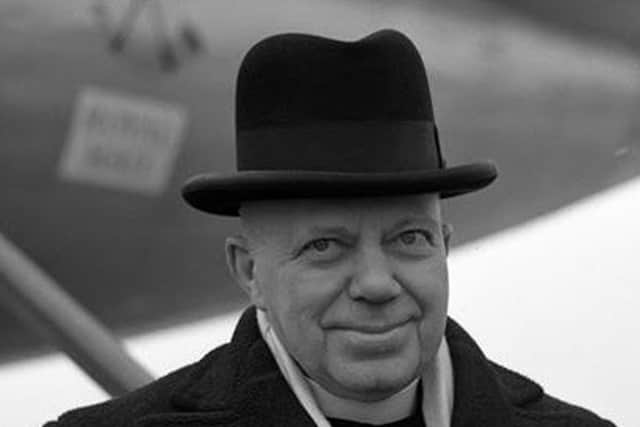Chichester Bishop Martin Warner reflects on his predecessor Bishop George Bell on anniversary of historic speech


On February 9, 1944, the Bishop of Chichester, George Bell, spoke in the House of Lords against the policy of blanket bombing towns and cities in Germany as a means of bringing the Second World War to an end.
Bishop Martin Warner said: “The extraordinary courage of his speech was recognised by many at the time. But it also brought him ridicule from the cartoonists, and disfavour from those in charge of military operations and ecclesiastical appointments. Before this speech, it had been thought that Bell would move from Chichester to higher office. That did not happen.“Bell had tabled a question asking His Majesty’s Government for “a statement as to their policy regarding the bombing of towns in enemy countries, with special reference to the effect of such bombing on civilians as well as objects of non-military and non-Industrial significance in the area attacked”.
Advertisement
Hide AdAdvertisement
Hide Ad“Bell began his speech by stating his credentials as a well-known opponent, from 1933 onwards, of Hitler and the Nazis. His view was informed by close ecumenical friendship with Christians in Germany. Bell went on to acknowledge the destruction by the Luftwaffe of “Belgrade, Warsaw, Rotterdam, London, Portsmouth, Coventry, Canterbury, and many other places of military, industrial, and cultural importance. Hitler is a barbarian. There is no decent person on the Allied side who is likely to suggest that we should make him our pattern or attempt to be competitors in that market.”
“But it was precisely in the policy of bombing targets that included areas of major cultural importance and dense civilian population that Bell saw the Allies following Hitler’s barbarian strategy. Bell gave examples of the destruction of Hamburg and Berlin, with terrible loss of human life, together with loss of a cultural and intellectual inheritance that belonged to more than just the people of Germany.
“Bell’s close connection with Germany gave him a sense that it was possible to draw a distinction between the German people and the Nazi regime that held them in thrall. He believed that Germans could recover their senses and be drawn back into the habits of the free world. “I do not believe that His Majesty’s Government desire the annihilation of Germany,” he declared: “they have accepted the distinction between Germany and the Hitlerite State.”
“Bell’s belief that the German people had not completely lost their sense of moral goodness prompted him to speak of “Anti-Nazis who long for help to overthrow Hitler [and] are driven to despair”. This was a reference to the Christian leaders of the resistance, whom he knew.
Advertisement
Hide AdAdvertisement
Hide Ad“Bell concluded his speech in the Lords with these words: “The Allies stand for something greater than power. The chief name inscribed on our banner is ‘Law’. It is of supreme importance that we who, with our Allies, are the liberators of Europe should so use power that it is always under the control of law. It is because the bombing of enemy towns — this area bombing — raises this issue of power unlimited and exclusive that such immense importance is bound to attach to the policy and action of His Majesty’s Government.”